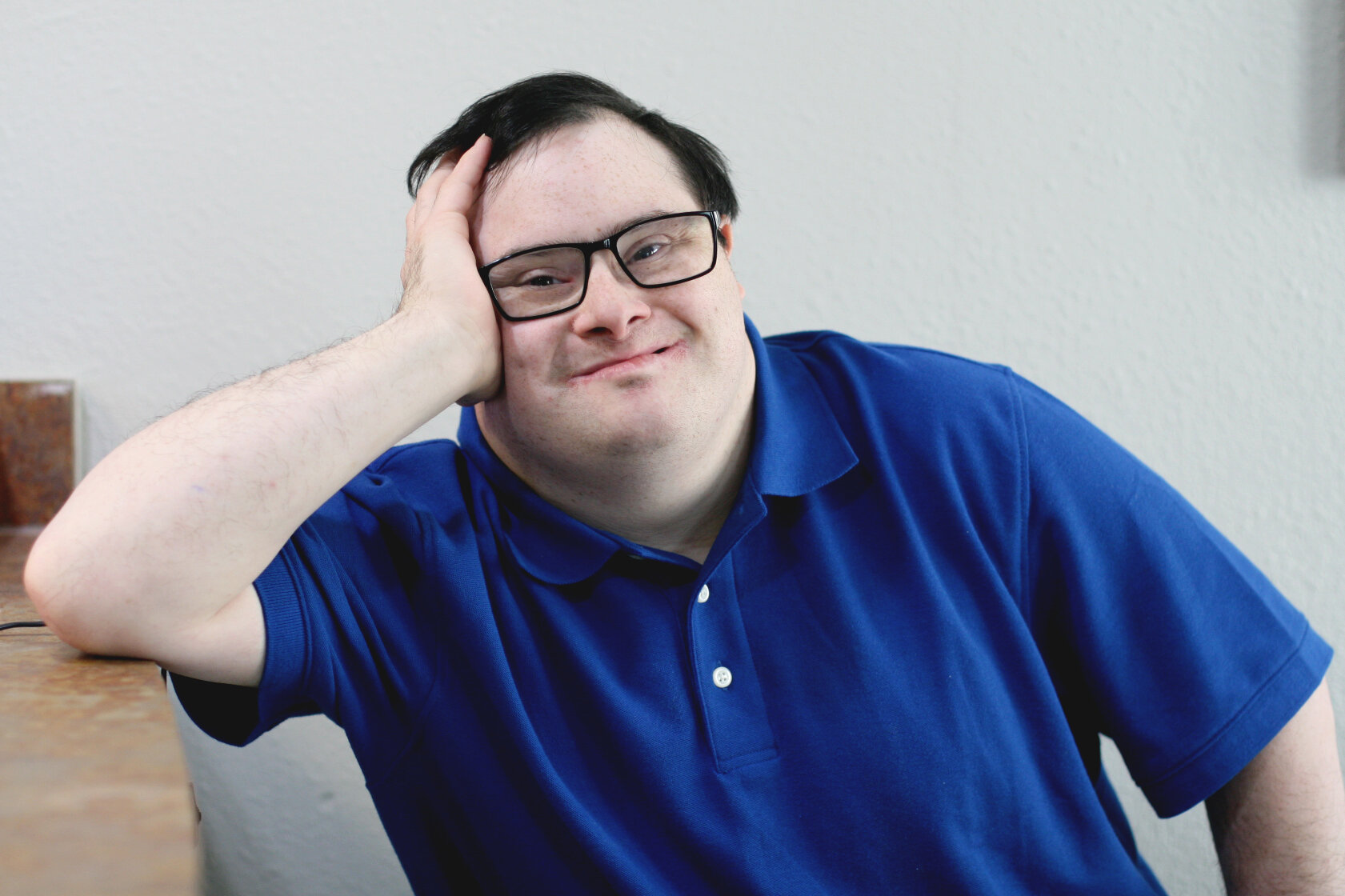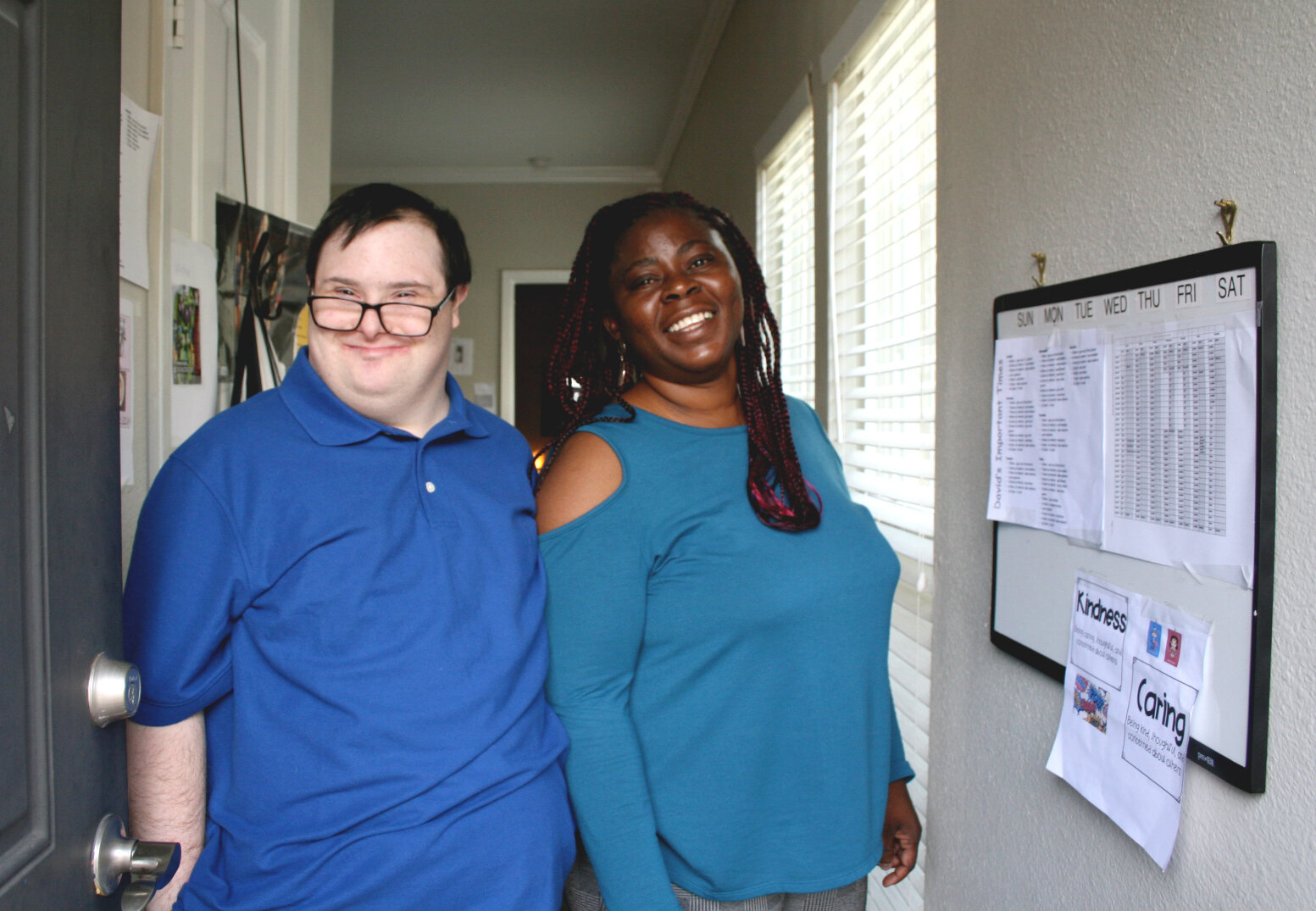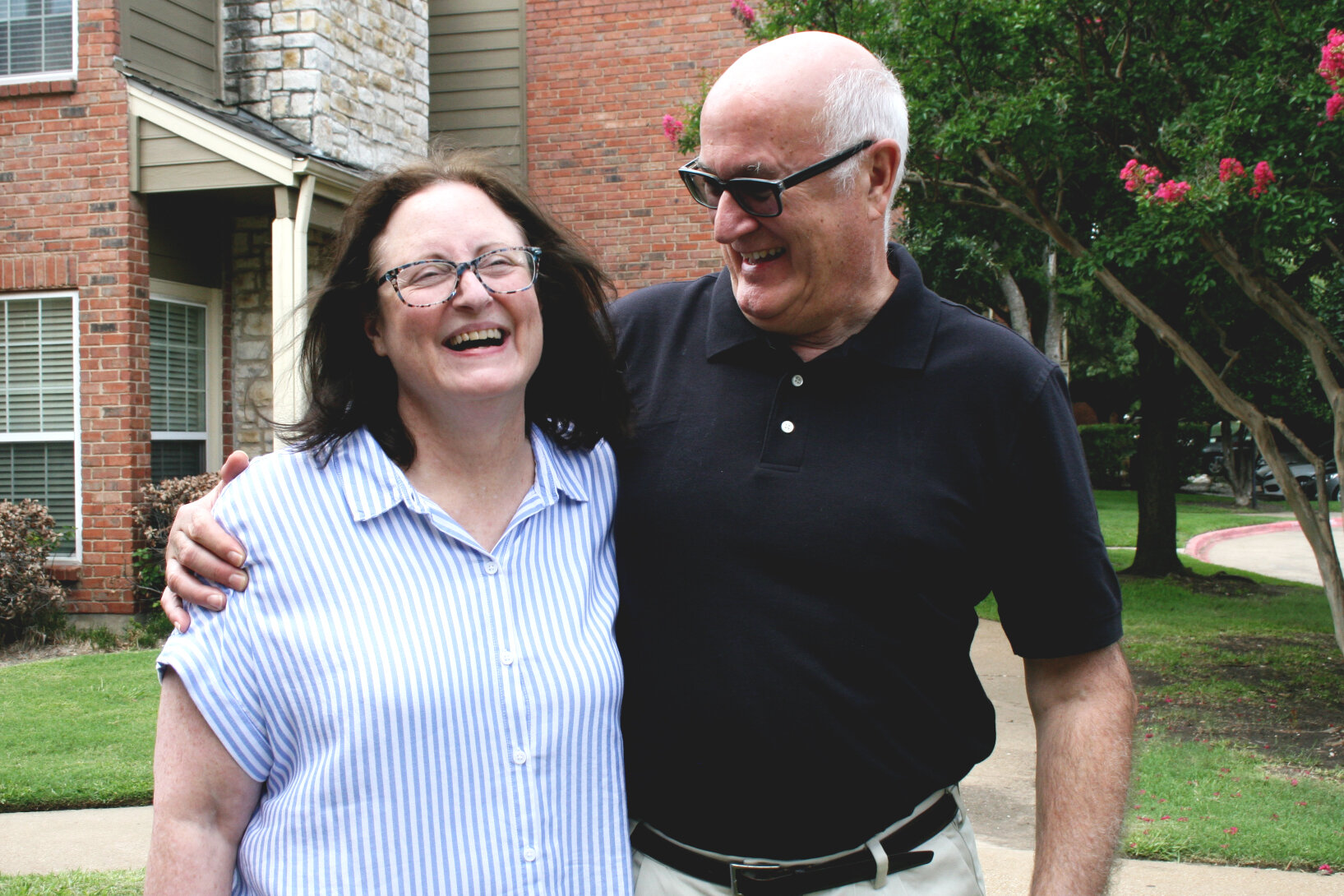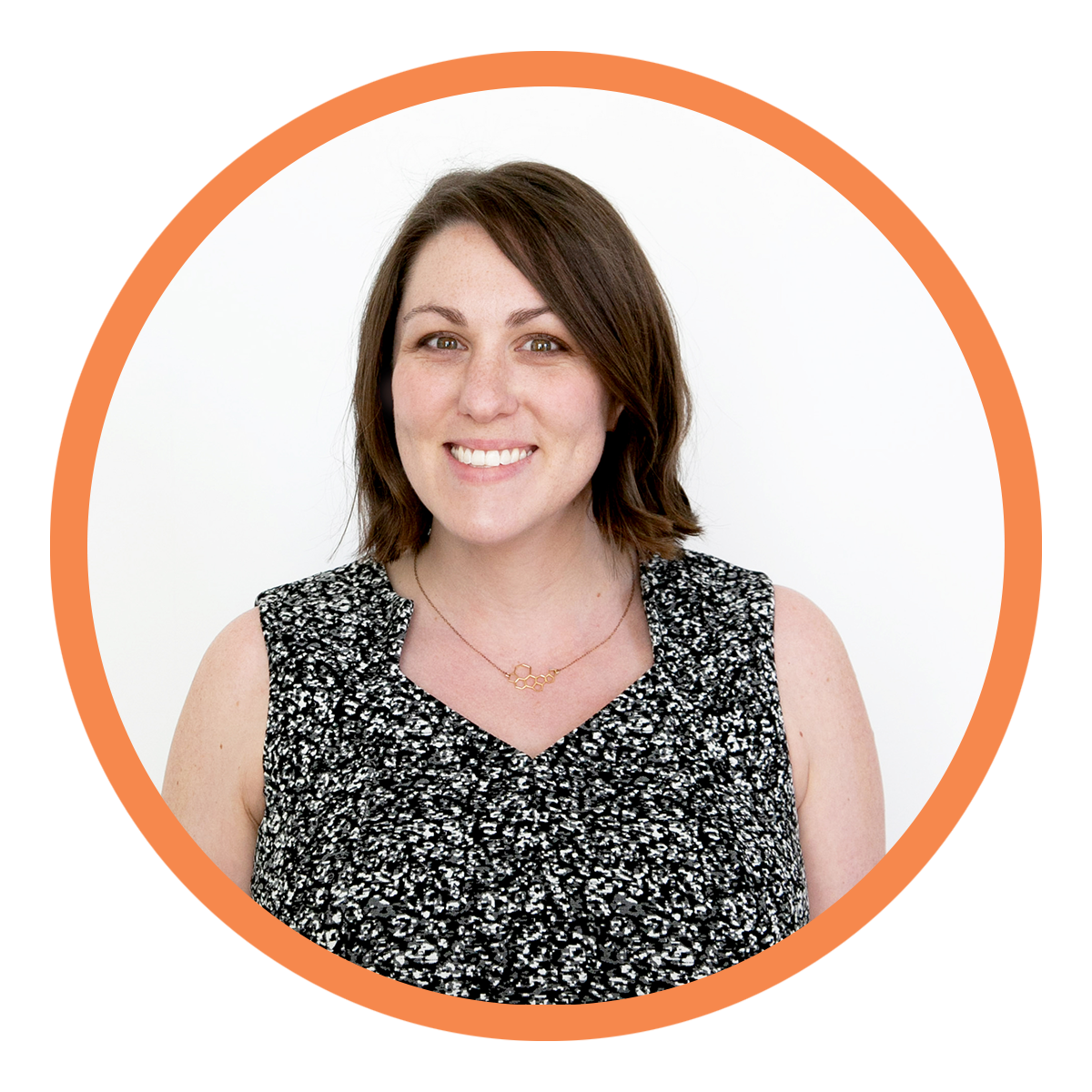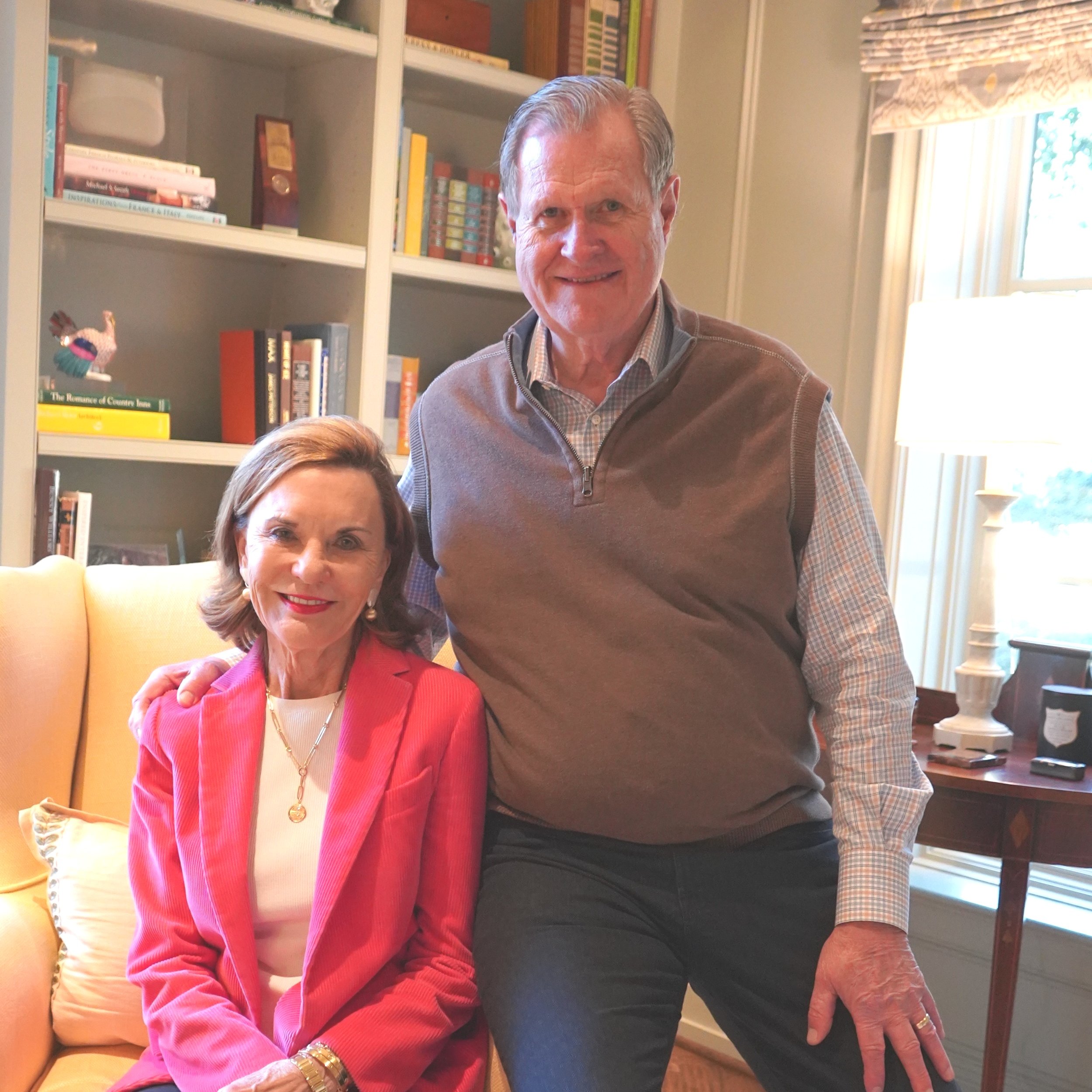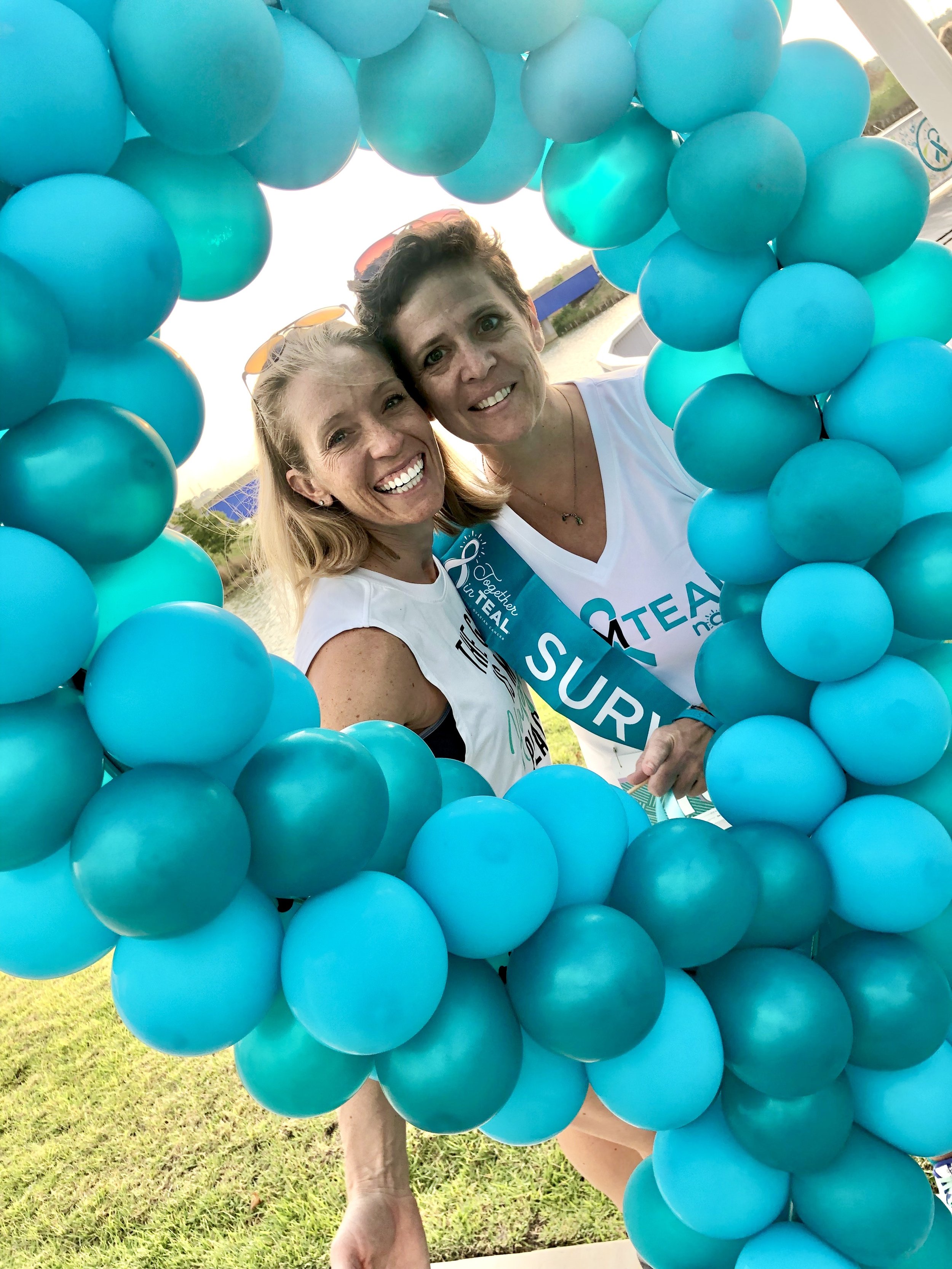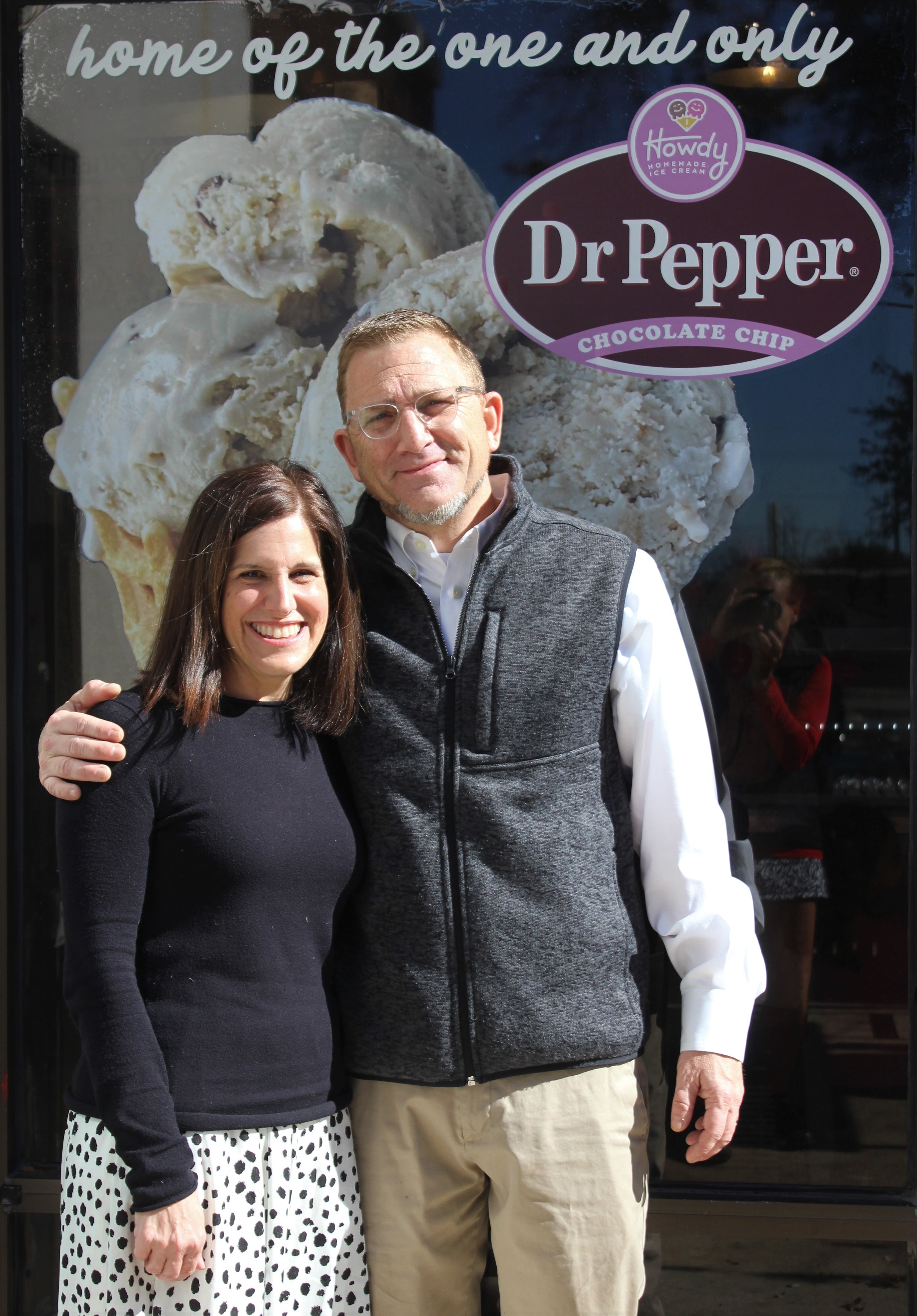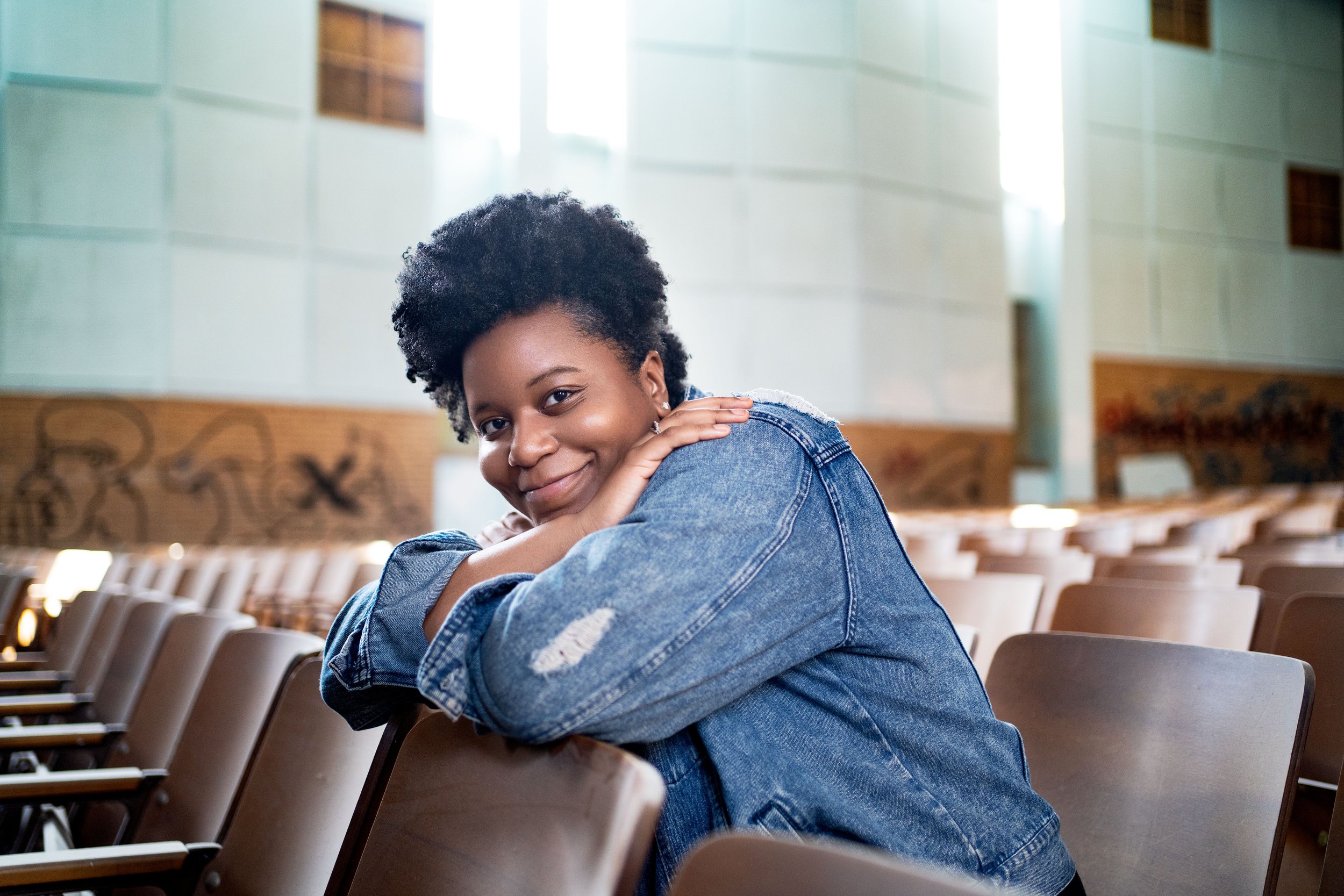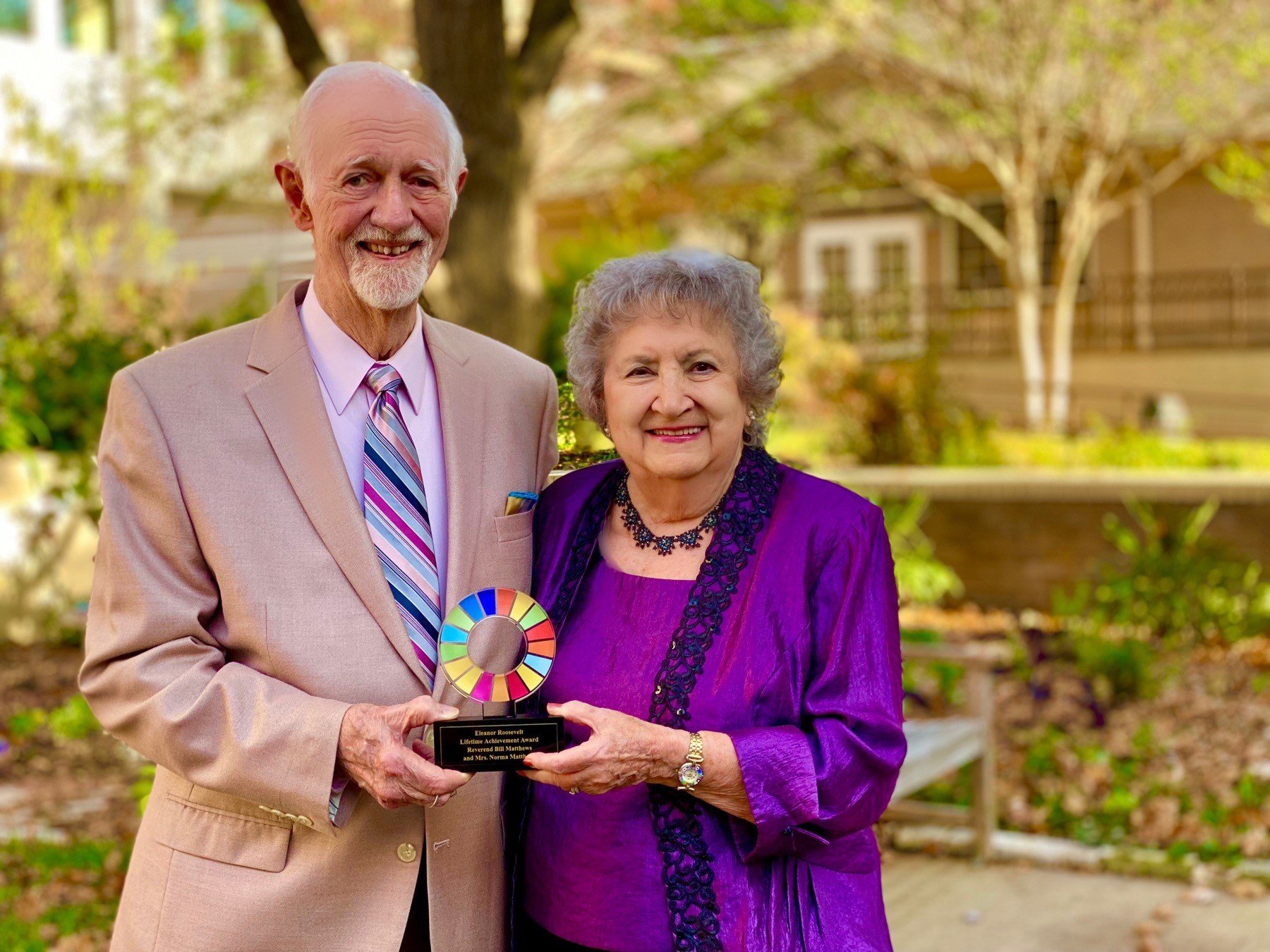Published July 14, 2021 at 2:33pm.
Story by Vanessa Dickerson. Photos by Mary Martin.
David LeoGrande loves french toast. Posted on his refrigerator is a weekly menu, and french toast makes an appearance for every breakfast. In the apartment kitchen that is just right for a millennial bachelor, David plans and prepares his meals, then gets a load of towels out of the dryer. David also has Down syndrome.
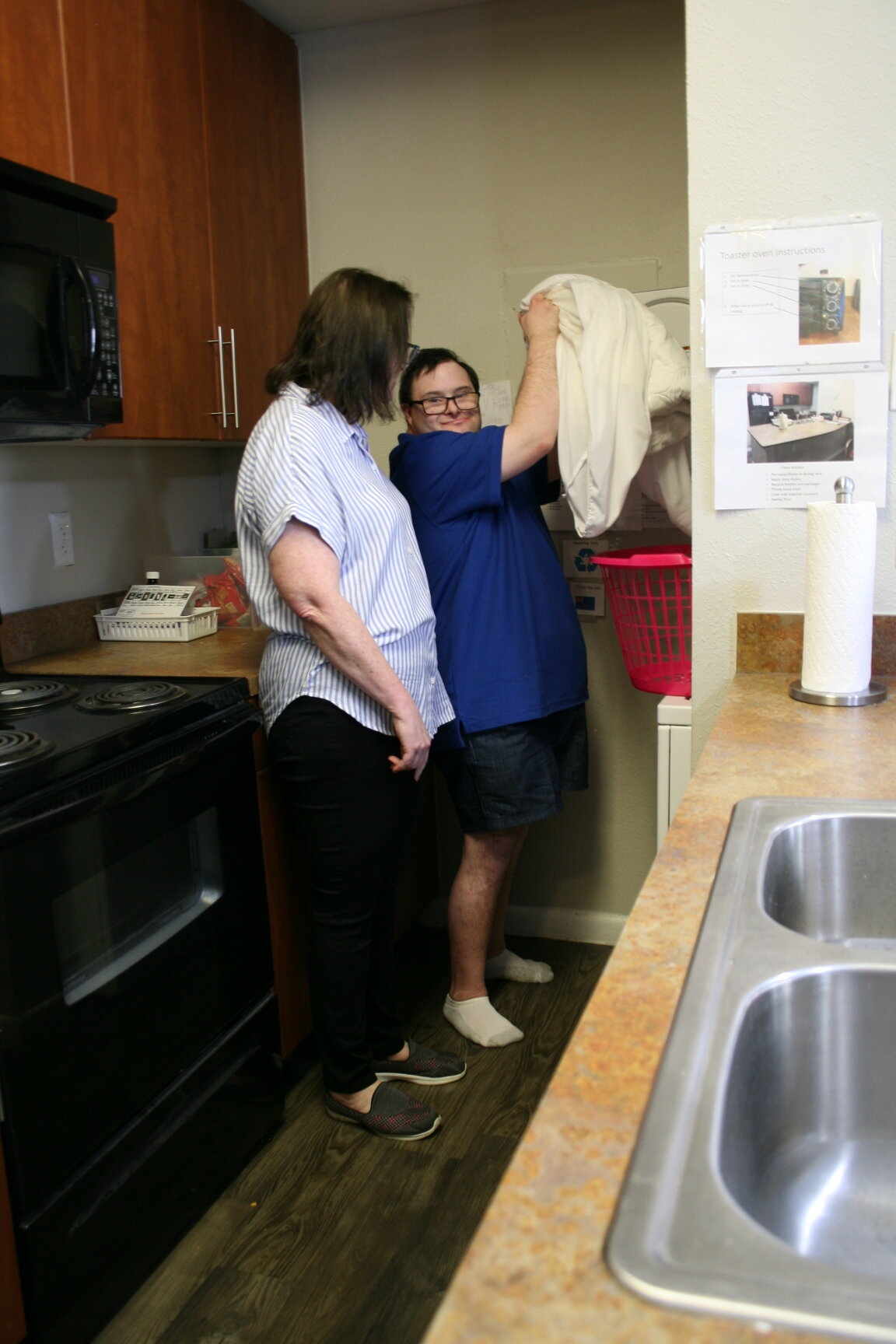
David unloads a basket of towels from his dryer.
As parents, we come to expect that our children will grow, become independent, and move into their own home one day. This launching process is not as simple for those with children who have IDD—Intellectual and Developmental Disabilities.
Robin LeoGrande, David’s mom, is the Founder and President of the Community for Permanent Supported Housing (CPSH), a small nonprofit serving Collin, Dallas, Denton, Ellis, Kaufman, Rockwall, and Tarrant Counties.
Robin was born and raised in Buffalo, NY, but moved to Texas out of college as a computer engineer to work in IT and semiconductor product development at Texas Instruments (TI). She retired after 32 years at TI, a successful career by all accounts.
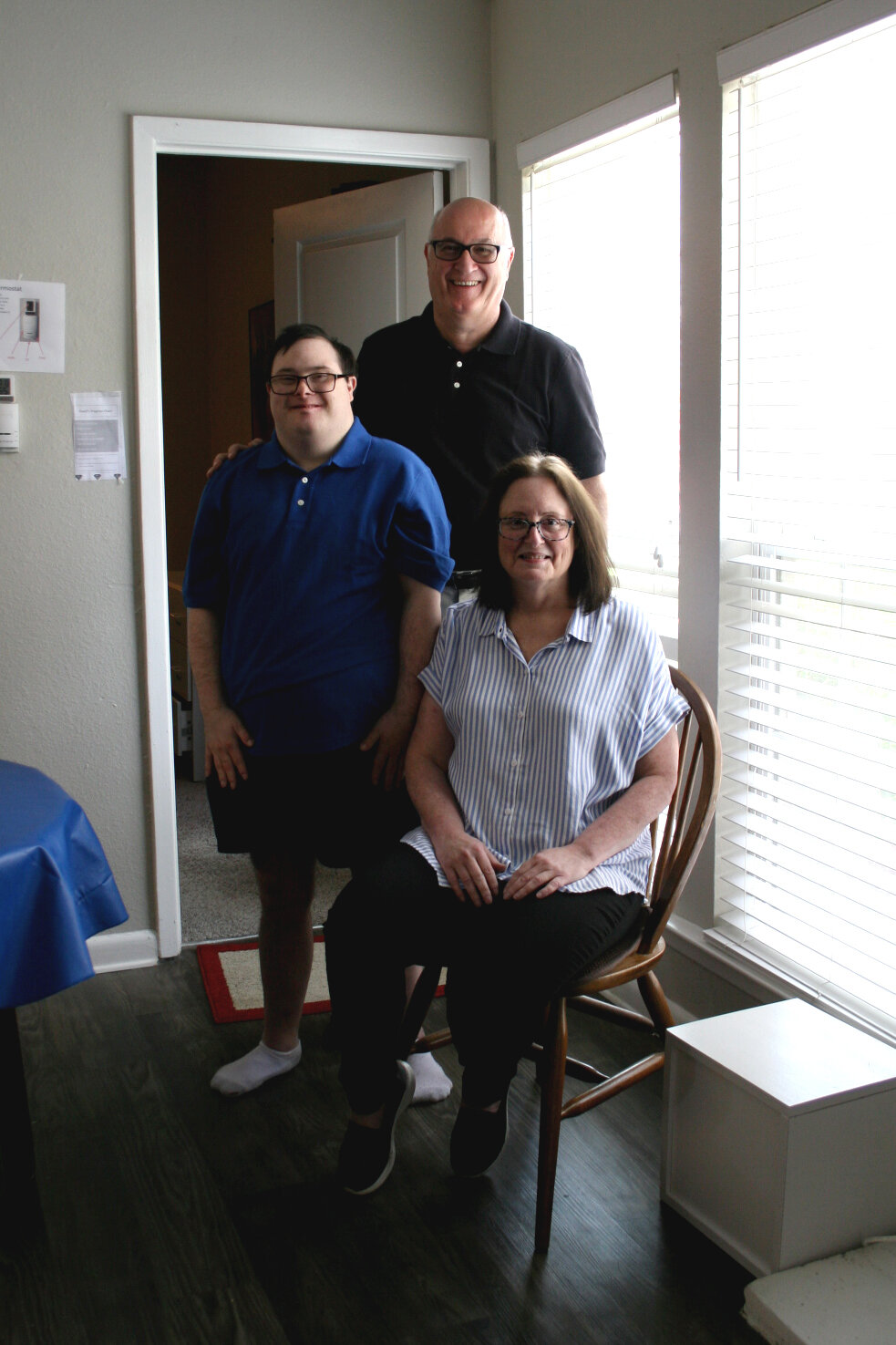
David with his dad, Jim, and mom, Robin at his apartment in Plano.
But Robin’s family life was never so straightforward. Robin’s second son, David, was born with Down Syndrome in 1989. As they raised David and taught him necessary life skills, Robin and her husband always wondered where David would begin the next chapter in his life, living independently. There were not many options for resources for those living with IDD or their families. A better solution was needed, so in 2011 Robin and Irene Niemotka began Community for Permanent Supported Housing, and over the years they have truly created a community like no other.
Community for Permanent Supported Housing is the only organization of its kind. They offer education and workshops to develop an appropriate plan for their child’s individual needs. “We don’t only help high-functioning people with disabilities, we want to help all people with disabilities,” Robin says, “We provide advocacy, help, and resources to all people with disabilities. We don’t provide the day-to-day services, but we like to work with agencies and partners and collaborators who also have the same philosophy to help all. We have many parents of children with disabilities calling us in housing and homeless to ask for help. When a parent gets to be 70, they give us a call because their adult child is still at home.”
The CPSH team works together with partners to fast-track a plan so those parents can rest assured their child is living independently, and they also work with high school students and their parents to begin the process sooner. Robin recalls that a co-worker at Texas Instruments called her when their son was just three months old, born with Down syndrome. Robin told them to start planning.
COVID-19 has created complications for housing across the world, but especially for those who have a disability and the organizations that help them. Robin has two perspectives, “On one hand, we did great. We transitioned everything online and had an outpouring of our community and new members find us, register for our classes, workshops, and seminars. We had an explosion of interest about housing in the community for people with disabilities in the last 18 months. On the other hand, I received many calls from parents about the well-being of their child with disabilities due to the rules, isolation, wearing masks, and not being able to be with their friends. A light at the end of the tunnel is hopefully nearing soon.”
Robin and her team are also facing the demographic realities of the IDD community—ensuring people of color with disabilities get and receive the services they need for a safe and enriched life. “We sometimes forget that disability is not particularly isolating to one religion, race, creed, or national origin,” Robin says. “The disabled community really runs the gamut of every demographic, if you will, of the population of the world. As a result, we are making a concerted effort to make sure people of color are included in every event in our community.”
CPSH is participating with University of North Texas and University of Texas at Dallas regarding their work with helping people understand the history of discrimination. It helps put into context the discrimination of those with disabilities and then those of color over the years in this country. “Population statistics estimate 20% of those with disabilities in DFW are of color—and we are continuing to refine that number as we learn more,” Robin says. “We have many people who need help, and we want to help everyone.”
Another looming issue is the severe lack of affordable housing in North Texas. “We want to have a seat at the table to represent people with disabilities,” Robin says. “We want to make sure people with disabilities are included early in the process of affordable housing.”
Housing is also a deeply personal choice, and finding a home that meets each set of unique needs is no easy task. “We didn’t decide where David would live, he decided,” Robin says. “We toured many different living situations, houses, apartments, and condos. We toured a home that had four girls with disabilities living there, we visited and had pizza. On the way home, David said, ‘I can’t do it.’ He was, like his father, he was thinking about all the responsibilities of living in a home–maintaining the home, mowing the yard, taking out the trash, keeping the garage clean. We began searching for an apartment with the specific goal in mind, where he could see himself living independently. The first time David stayed overnight in his apartment was the first time he had ever stayed alone. We were too protective of him. He had no problem sleeping alone, no parents, no grandparents, no camp directors; he did it on his own. I was so grateful because for 29 years I was concerned about how he would do without us. He still gets support services during the day when he’s awake.”
David still receives support services during the day, from independent living skills like cooking breakfast, taking medication, and staying clean and healthy, as well as job coaching and placement, transportation, speech therapy, and behavior support. “We are a person-centered organization,” Robin says. “We help parents of individuals with disabilities find the services they need. We are an advocacy group and an education group. There are many people who know how to provide the services in great ways. We don’t need to reinvent the wheel, what we need to do is make sure families understand the way to get the care for their loved ones and for individuals with disabilities to feel like they are heard in terms of what they need, e.g., where they want to live, how they get jobs, how to find doctors sensitive to their particular situation. We partner with everyone who is willing to partner with us.”
David with Loveline Nwankwo, his longtime caregiver from Steadfast Home Health & Mental Services.
As for growing the organization, CPSH is dependent on the community. Robin says, “This charity is not particularly in the forefront for opportunities for funding. We have received a few small grants to support our education and workshops and those that can give, do.” They recently became a Texas Workforce Commission contractor (TWC), which is both amazing for them and the state. The recognition that housing and work and services are all intertwined, and the individuals with disabilities and their families need to understand how important these three things are linked together. For TWC to recognize that CPSH are the leaders in this area was beyond their wildest dreams. “We don’t want segregated housing just for people with disabilities. We want to be of the community, not segregated from the community. They know they have disabilities but don’t want to be treated differently except where special services are needed.” It’s a really important concept to continue sharing because people with disabilities are so able, so able, given the right support around them.
CPSH and Robin are working at the state level to update the strategic plan for individuals with disabilities. She said it is such an honor to be a voice of knowledge. They have a working relationship with the local housing authority with Main Stream Vouchers, specifically for people with disabilities. With these vouchers, safe and affordable housing can be found at 30% of their monthly income. Additionally, with virtual meetings since COVID-19 began, they have been able to help people across the state and country. They will continue these efforts to help as many people as they can.
Robin and Jim LeoGrande.
Robin says, “we are the ones who, 50% of the time, helps bridge the conversation, and it is very rewarding to see the light bulbs going on and a great joy in what we’re doing so the individual does not feel like they’re stuck in a house watching television, but can go out and do things.”
If you would like to learn more about CPSH and support their work, visit their website at txcpsh.org.
More Good Stories
Featured
When Kathy and Larry Helm heard about The Senior Source’s 60th Birthday Diamond Dance-Off, they knew they had to put on their dancing shoes! For the Helms, this event combined two of their passions into one. Celebrating and supporting The Senior Source, a Dallas-area nonprofit that has been serving older adults for 60 years, and dancing together, which they have been doing since they were high school sweethearts. Both Kathy and Larry have chaired the board of directors of The Senior Source and have been proud supporters since 1998. It seemed only fitting they should be voted into the finals to dance on stage at Klyde Warren Park this past summer.
In 2020, more than 912,000 women were diagnosed with some form of cancer in the United States alone. During that same pandemic year, countless medical appointments were canceled while people were social distancing, and yet still each day nearly 2,500 women heard the news, “you have cancer.” There is no doubt that these words can be crushing to hear, but what’s equally crushing is the lack of tangible, encouraging support that exists to help women feel beautiful, strong or “normal” before, during and after cancer treatment.
When Tom Landis opened the doors to Howdy Homemade in 2015, he didn’t have a business plan. He had a people plan. And by creating a space where teens and adults with disabilities can find meaningful employment, he is impacting lives throughout our community and challenging business leaders to become more inclusive in their hiring practices.
Have you ever met someone with great energy and just inspired you to be a better you? Nitashia Johnson is a creator who believes by showing the love and beauty in the world it will be contagious and make an impact. She is an encourager and knows what “never give up” means. Nitashia is a multimedia artist who works in photography, video, visual arts and graphic design. Her spirit for art and teaching is abundant and the city of Dallas is fortunate to have her in the community.
The United Nations Association Dallas Chapter (DUNA) honored Rev. Bill and Norma Matthews for their ongoing commitment, helping advance the United Nations Sustainable Development Goals agenda by promoting peace and well-being.
